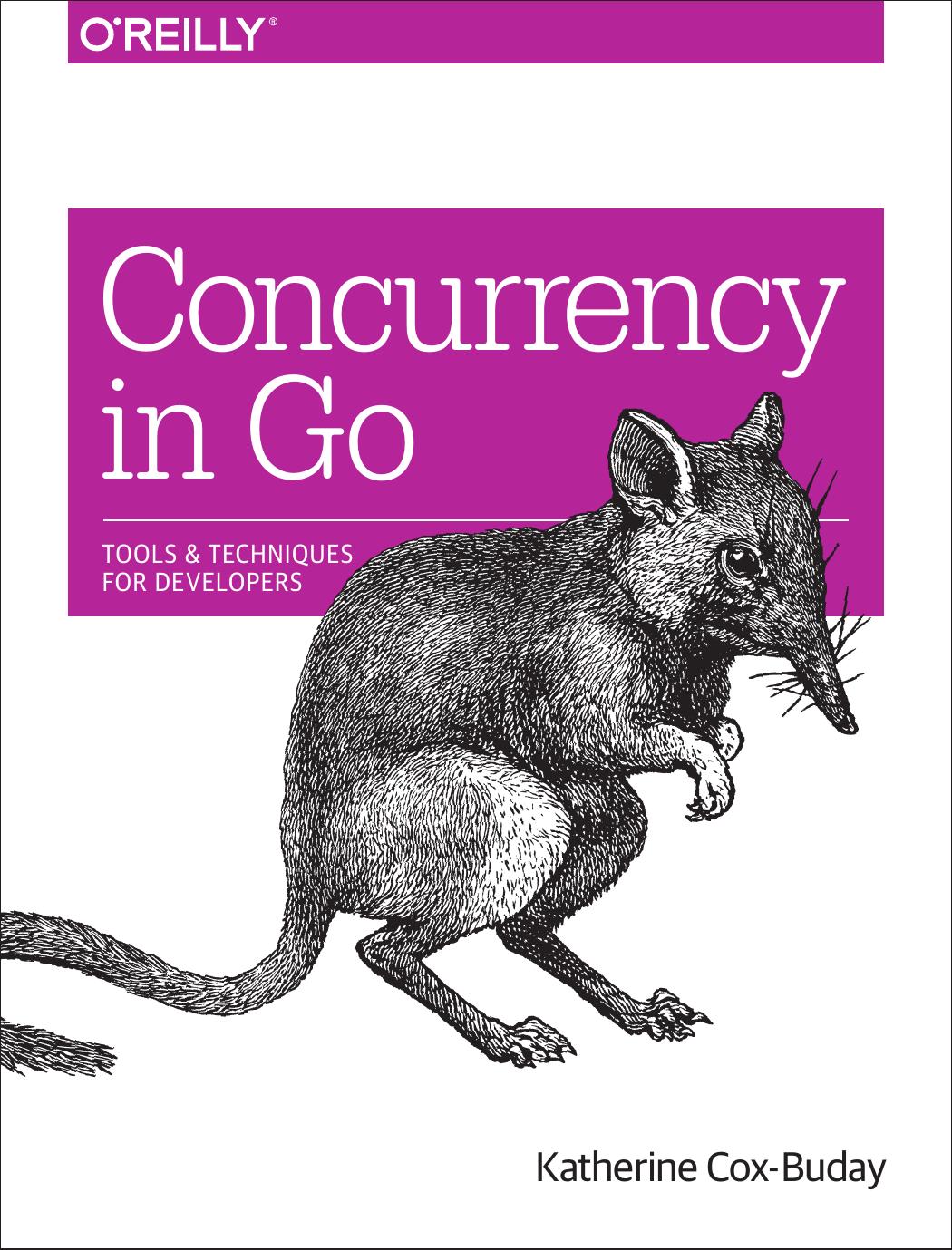Concurrency in Go: Tools and Techniques for Developers by Katherine Cox-Buday

Author:Katherine Cox-Buday [Cox-Buday, Katherine]
Language: eng
Format: azw3, pdf
Publisher: O'Reilly Media
Published: 2017-07-19T04:00:00+00:00
Best Practices for Constructing Pipelines
Channels are uniquely suited to constructing pipelines in Go because they fulfill all of our basic requirements. They can receive and emit values, they can safely be used concurrently, they can be ranged over, and they are reified by the language. Let’s take a moment and convert the previous example to utilize channels instead:
generator := func(done <-chan interface{}, integers ...int) <-chan int { intStream := make(chan int) go func() { defer close(intStream) for _, i := range integers { select { case <-done: return case intStream <- i: } } }() return intStream } multiply := func( done <-chan interface{}, intStream <-chan int, multiplier int, ) <-chan int { multipliedStream := make(chan int) go func() { defer close(multipliedStream) for i := range intStream { select { case <-done: return case multipliedStream <- i*multiplier: } } }() return multipliedStream } add := func( done <-chan interface{}, intStream <-chan int, additive int, ) <-chan int { addedStream := make(chan int) go func() { defer close(addedStream) for i := range intStream { select { case <-done: return case addedStream <- i+additive: } } }() return addedStream } done := make(chan interface{}) defer close(done) intStream := generator(done, 1, 2, 3, 4) pipeline := multiply(done, add(done, multiply(done, intStream, 2), 1), 2) for v := range pipeline { fmt.Println(v) }
This code produces:
Download
Concurrency in Go: Tools and Techniques for Developers by Katherine Cox-Buday.pdf
This site does not store any files on its server. We only index and link to content provided by other sites. Please contact the content providers to delete copyright contents if any and email us, we'll remove relevant links or contents immediately.
The Mikado Method by Ola Ellnestam Daniel Brolund(22431)
Hello! Python by Anthony Briggs(21620)
Secrets of the JavaScript Ninja by John Resig Bear Bibeault(20183)
The Well-Grounded Java Developer by Benjamin J. Evans Martijn Verburg(19309)
Kotlin in Action by Dmitry Jemerov(19233)
OCA Java SE 8 Programmer I Certification Guide by Mala Gupta(18772)
Algorithms of the Intelligent Web by Haralambos Marmanis;Dmitry Babenko(17575)
Grails in Action by Glen Smith Peter Ledbrook(16726)
Sass and Compass in Action by Wynn Netherland Nathan Weizenbaum Chris Eppstein Brandon Mathis(14219)
Test-Driven iOS Development with Swift 4 by Dominik Hauser(10923)
Windows APT Warfare by Sheng-Hao Ma(7848)
Layered Design for Ruby on Rails Applications by Vladimir Dementyev(7561)
Blueprints Visual Scripting for Unreal Engine 5 - Third Edition by Marcos Romero & Brenden Sewell(7464)
Solidity Programming Essentials by Ritesh Modi(4582)
Functional Programming in JavaScript by Mantyla Dan(4508)
Hands-On Full-Stack Web Development with GraphQL and React by Sebastian Grebe(4444)
WordPress Plugin Development Cookbook by Yannick Lefebvre(4404)
Unity 3D Game Development by Anthony Davis & Travis Baptiste & Russell Craig & Ryan Stunkel(4272)
The Ultimate iOS Interview Playbook by Avi Tsadok(4265)
